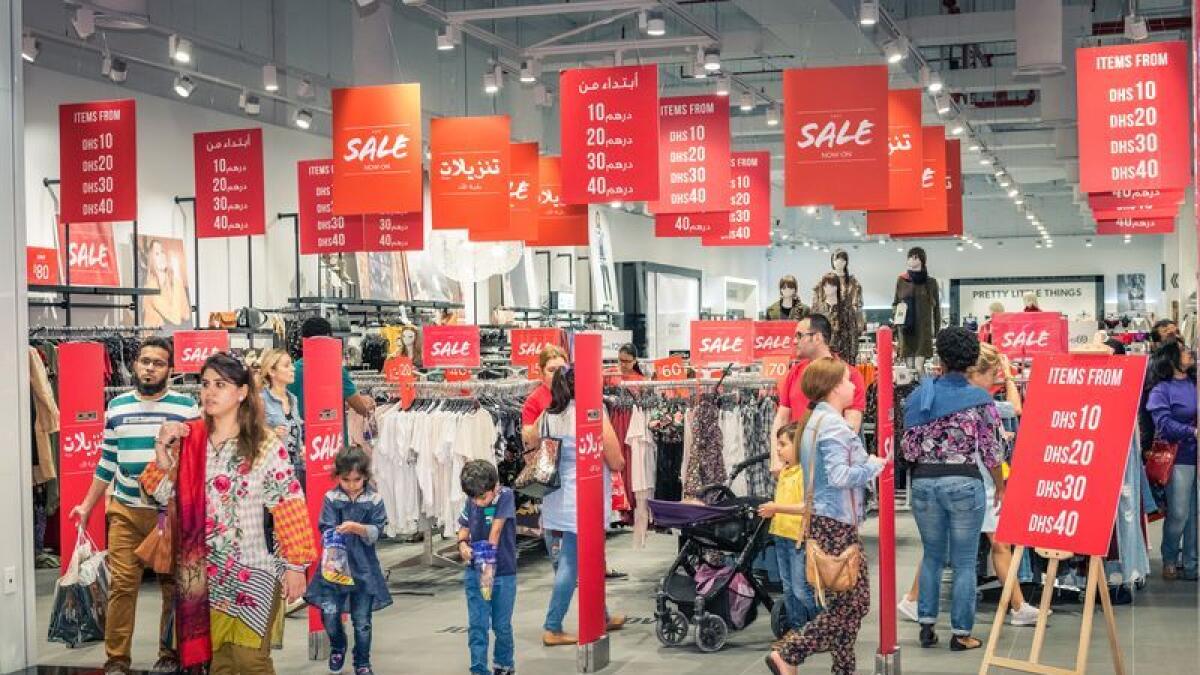The retail industry in the Gulf Cooperation Council (GCC) is experiencing steady growth, with sales expected to increase at a compound annual growth rate (CAGR) of 4.6% to reach $386.9 billion by 2028, up from $309.6 billion in 2023. Saudi Arabia and the United Arab Emirates (UAE) are leading the growth, with projected CAGR of 5.1% and 5.4% respectively during the same period, reaching sales of $161.4 billion and $139.1 billion, respectively. Non-food retail sales are expected to grow at a CAGR of 4.3%, while food retail sales are anticipated to rise at a pace of 5.0% CAGR between 2023 and 2028.
The GCC is also expected to see an increase in retail space, with a projected addition of 3.9 million square meters of retail space between 2023 and 2028. This growth will take the total organized retail gross leasable area (GLA) to 24.3 million square meters, with a modest growth scenario and organized retail GLA expected to grow at a CAGR of 2.9% during the period. Personal luxury goods sales in the Middle East, primarily driven by the GCC, are forecasted to reach $20.2 billion by 2028, growing at a CAGR of 6.5% since 2023.
Duty-free sales at airports in the GCC, including Dubai, Abu Dhabi, Qatar, and Bahrain, are expected to reach $4.7 billion in 2028, growing at a CAGR of 9.3% between 2023 and 2028. This growth is attributed to the anticipated rise in passenger traffic, driven by government initiatives to promote tourism. The rising population in the GCC, with a high concentration of expatriates and high-net-worth individuals (HNWIs), is a major factor in driving the growth of the retail industry, with the region’s population expected to grow at a CAGR of 1.8% between 2023 and 2028.
With expanding infrastructure developments, the GCC economies are positioning themselves as hubs for global business, entertainment, and sporting events. International tourist arrivals are projected to grow at a CAGR of 6.1% between 2023 and 2028, reaching 109.8 billion, which will contribute to the overall retail sales figures. Additionally, existing free trade agreements and ongoing negotiations with countries globally are expected to increase the range of foreign products in domestic retail outlets and expand the establishment of international brands in the region.
However, the GCC retail industry faces challenges such as vulnerability in hydrocarbon revenues due to oil production cuts, rising geopolitical concerns, and global macroeconomic headwinds. The region heavily relies on external sources of food supply, making it vulnerable to supply-side shocks that can lead to inflationary pressure on the economies, impacting consumer spending power and potentially slowing down the retail industry. High living costs inflation have led to constrained discretionary spending, prompting consumers to prioritize experiences over shopping and seek more value.
In response to these challenges, retailers in the GCC are increasingly adopting omnichannel formats and investing in digital infrastructure to enhance customer experiences. The digital transformation across the region’s retail industry is escalating rapidly, with operators implementing new technologies to optimize business processes, reduce costs, and create growth-oriented business models. The rise in oil revenues and robust non-hydrocarbon growth, driven by government-led reforms, is expected to boost economic activity, increase domestic consumer demand, and improve the appetite for global brands and luxury items. This improvement in business confidence and consumer spending power is likely to lead to further growth in the retail industry and expansion of retail M&A landscape in the GCC.









